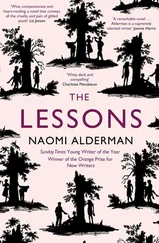And then had to slam on the brakes to avoid hitting the car in front of her.
Malachi plowed into the back of her seat, slamming her into the steering wheel. She held her breath, but the airbag didn’t deploy.
“Raaaoomph!” Malachi scrambled to right himself, giving her a baleful look that said he thought the entire affair was her fault. She supposed it was. Easing her foot off the brake pedal, she edged the car forward once again, catching one last glimpse of the black lace parasol in her rearview mirror.
Once in the downtown area, traffic became congested, slowing her down. Tourists—both spectral and human—were out in force. Service trucks and horse-drawn flatbed wagons clogged the street. She crawled past block after block of majestic, Victorian-style buildings that housed apartments, offices, and boutiques. Impatiently drumming her fingers on the steering wheel, she noticed faded white block lettering on the balcony railing of a two-story clapboard building facing the waterfront: Cosmopolitan H--el. On impulse, she pulled out of her lane and whipped down the side street, parking across from the hotel’s entrance.
Telling an impatient Malachi to stay, she jogged across the street. Inside the hotel, she discovered a small, tastefully appointed lobby with high, stenciled ceilings and massive wood columns. Plush carpet muffled her footsteps. Groupings of overstuffed, comfortable-looking furniture were cleverly placed about the room for optimum privacy. Under a leaded-glass window, a sturdy Arts and Crafts library table offered an assortment of baskets containing mouthwatering pastries and thermoses filled with gourmet coffee blends.
Across the room stood an ornate oak conference table that held a telephone, a leather-bound guest register, and stacks of papers. A short, trim man with a receding hairline, dressed in dark wool slacks and a crisp white Oxford shirt, sat at the table. He glanced up from the pages he was reading, gazing at her through expensive, rimless eyeglasses, his expression briefly impatient.
“May I help you?” he asked in a clipped East Coast accent. He pasted a smile on his face.
Jordan walked over and offered her hand, introducing herself. “Are you the owner?”
“Yes,” he replied, not volunteering his name. “I really don’t have time right now for solicitations. I’m terribly slammed, so …”
She was momentarily speechless—she wasn’t often mistaken for a salesperson. “Um, sorry, didn’t mean to give the wrong impression. I live up the hill in Longren House, and I’m researching a historic event that may have a connection to your hotel.”
“ Boutique hotel,” he corrected her. “Please refer to my establishment that way in any future conversations. It’s important to distinguish oneself from the chains these days, so that people understand we provide a much higher quality of service and more pleasant experience for the traveler.”
Right . “I understand a shanghaier from the nineteenth century, Michael Seavey, used to own this building?”
He relaxed slightly. “Yes, indeed. His ghost haunts the penthouse suite even to this day. It’s quite the draw for tourists visiting our region.”
“Really?” She wondered if he’d made that up as a promotional gimmick, or if he could actually sense Seavey’s presence. “Would you mind if I viewed that suite of rooms?”
“I’m afraid that’s impossible—they’re currently under renovation. In fact, that’s why I’m so far behind in my work. The individual handling the renovation is suddenly indisposed, and I must find someone to replace him.” The owner scowled, straightening the sheaf of papers he held and setting them down so that they were perfectly aligned on the desk. “Although I certainly sympathize with the man’s plight, it has simply ruined my schedule. I may have to turn away customers because of this disaster!”
It was on the tip of her tongue to point out that Holt probably viewed his murder as representing more than a scheduling inconvenience, but she managed to say instead, “I don’t mind a little plaster dust. I was actually hoping to speak with any workers who might still be up there. If you’re too busy to accompany me to the penthouse, I’d be glad to go up on my own.”
“Out of the question!” Though the owner was still seated, he somehow managed to look down his nose. “I can’t have you interrupting what little work is still being accomplished.”
“I promise I won’t take up too much of their time,” she assured him. “One question, and then I’m gone.”
“What is it, exactly, that you wish to know?”
“I’m hoping that the workers might tell me whether Holt Stilwell found any old papers during the renovation. Perhaps something left behind by Michael Seavey—”
“Absolutely not!” The owner jumped to his feet, his face flushing an unbecoming shade of puce. “If any historic documents had been found, those documents would be the property of the hotel. You have no right to them whatsoever !”
“No, no,” she backpedaled. “I wouldn’t try to claim them or anything. I just want to take a look at them. You see, I’m researching the circumstances surrounding Michael Seavey’s death in 1893—”
“ No! ” He rushed around the desk, pointing a trembling finger at the front door. “I want you to leave, immediately!”
She gaped at him and backed up a few steps. “Have I offended you in some way, Mr.…?”
“You have no right to be here! If you don’t leave, right this minute , I’ll call the authorities!”
“Whoa. Okay.” She danced back a few more steps, hands raised. “No problem. I’m leaving.”
“Get out!” he shouted, advancing on her.
She turned and ran out the front door, noting the curious stares from the few guests who were seated in the lobby.
“And don’t come back!” he screeched from inside the lobby.
Outside, she walked a few yards toward the bay, then stopped, thoroughly shaken by the encounter.
“Your apparent lack of social skills continues to be a detriment, I see.”
The deep baritone came from behind her. Michael Seavey appeared from the shadows, looking amused. He must have witnessed her argument with the owner.
“That man needs his meds adjusted,” she grumbled.
“Pardon?”
“Never mind.”
“He’s an obnoxious little creature, is he not? I quite enjoy making his life difficult at every opportunity.”
Jordan glanced around to make certain no one was observing their conversation. She was still unused to appearing to others as if she were talking to herself. “What’s that guy’s problem? Do you know?”
Seavey shrugged, his shoulders moving under the expensive slate-gray fabric of his coat. “I confess I have no idea,” he replied.
Today he wore a beautifully tailored suit over a pale gray silk shirt, a snowy white handkerchief tucked into his breast pocket, a black top hat, and black leather walking boots. In deference to her, he’d removed his top hat and held it in one hand. She had to admit, he was certainly the most stylishly dressed ghost she’d come across.
“I don’t spend my time worrying about the man,” Seavey continued. “If he becomes too intrusive, I’ll find a way to be rid of him.”
His mildly disapproving gaze traveled over the jeans and cotton sweater she’d thrown on earlier in her haste to leave the house. “I had thought perhaps the outfit you wore last evening was an aberration, but you seem to delight in wearing mannish clothing. My deceased wife wore such garments on occasion, but for good reason: It’s quite difficult to wield a bullwhip wearing silk skirts. You, however, have no such excuse.”
She planted her hands on her hips. “This is perfectly acceptable attire for a woman of this century—just look around you. I’m sure you’ve seen worse on the guests staying in your suite of rooms.”
Читать дальше












